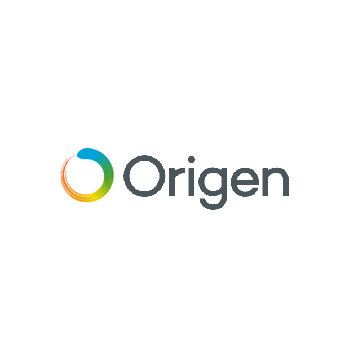R&D Tax Credit Specialists & Accountants In London
Research and development (R&D) tax credits incentive designed to reward UK companies. Are you claiming back your business innovation?
R&D Tax Credits incentives for both small and medium size enterprises (SMEs) and large companies to reclaim some of their expenses. The amount that you can claim back for R&D (Research and Development) depends on various factors, including the country or region where your business operates, the type of R&D activity you undertake.
Our team of tax experts specialise in helping companies of all sizes claim R&D tax credits which they are entitled to. Find out if your business is eligible by requesting a call back from our R&D tax credits experts.
Alternatively call us on 02076860000 or send your enquiry to ask@dragonargent.com
TRUSTED BY FOUNDERS, STARTUPS & SMEs
You have invested in your business, let’s claim back your money
The UK Government is committed to making the UK a competitive place to innovate and grow. R&D tax credit schemes allow businesses that carry out qualifying R&D to mitigate their tax liability where businesses are liable for corporation tax or, in some circumstances, businesses may receive a payable tax credit. The value of these incentives and mechanisms varies depending on the size of the business.
For every £1 spent on research and development (R&D), it’s estimated 18p for loss making companies and 21p for profit making companies.
Large companies can claim up to 15p for every £1 of qualifying spend.
Fees as low as 8-10% depending on the claim amount.
R&D APPLICATION PROCESS
R&D tax credit claims are monitored and processed by HMRC and you can make a claim going back 2 accounting periods.
Schedule a discovery call
Contact us for a initial consultation to check whether your business is eligible for R&D claim.
Reviewed by our R&D experts
Our tax experts will collect sufficient financial and technical information from your team, and perform an in-depth analysis to ensure no eligible cost is left out of your R&D Tax Credit claim.
We submit to HMRC
We pledge to complete and submit your R&D claim to HMRC within 10-14 working days of receiving sufficient information.
Receive Tax Relief from HMRC
HMRC approves your R&D claim and you receive the maximum tax benefit; either as cash or as a tax credit against future or current tax liabilities.
SUCCESS STORY
How Dragon Argent helped Sphere a tech based company claim R&D tax relief
“Dragon Argent have provided seamless R&D services to Sphere for our 2019 and 2020 accounting periods, assisting us in receiving over £450k in cash rebates. They charge only 5% of the rebate as a fee, which appears to be very cost-efficient compared to other entities offering such a comprehensive “all-in-one” service. They run the whole project from start to finish, carrying out the detailed calculation as well as the supporting technical narrative, and all related documentation and filings. They complete this in a way which minimises input time from ourselves which we find very valuable, generally only requiring an hour or so on a call so that they can fully understand the development project. We will certainly continue to engage Dragon Argent for R&D services in the future.”
David Parker | Chief Technical Officer at Sphere
HOW CAN OUR R&D SPECIALISTS HELP YOUR BUSINESS?
Dragon Argent are experienced, London based R&D Tax specialist, supporting technology enabled startups and SMEs. Reach out to our R&D experts by sending your questions to ask@dragonargent.com or fill out the below enquiry form.
We help prepare and submit your R&D tax relief claim, but please note that we cannot guarantee it will be approved by HMRC. The decision to accept or reject the claim is entirely up to HMRC. If HMRC does not approve your claim, we are not responsible for any losses, penalties, or additional taxes you might face.
Please also be aware that our fees for preparing and submitting your claim are non-refundable, regardless of the claim's outcome. These fees cover the professional services we provide and are not based on whether the claim is approved.
Alternatively call us on 02076860000 or send your enquiry to ask@dragonargent.com
Frequently Asked R&D Tax Relief Questions
-
R&D stands for Research and Development. It refers to the systematic and creative work undertaken by companies or organizations with the aim of developing new or improved products, processes, or services, or of improving existing ones.
The purpose of R&D is to find solutions to problems or to identify new opportunities by conducting scientific or technical research, experimentation, and innovation. R&D can involve a wide range of activities, such as basic research, applied research, experimental development, and design.
-
In general, R&D (Research and Development) refers to systematic and creative work undertaken by businesses or organizations with the aim of developing new or improved products, processes, or services, or of improving existing ones. To qualify as R&D, the work must meet certain criteria, such as:
Technological uncertainty: The work must involve an attempt to solve a technical problem, and there must be uncertainty about whether or how the problem can be solved using existing knowledge or technology.
Systematic investigation: The work must involve a systematic process of investigation, including planning, testing, and analyzing results.
Novelty: The work must result in new or improved products, processes, or services that are not simply routine or incremental improvements.
Technical content: The work must involve a significant amount of technical content, such as engineering, design, or scientific principles.
Examples of activities that may qualify as R&D include:
Developing new products, such as pharmaceuticals or software
Improving existing products, such as making them more efficient or eco-friendly
Developing new manufacturing processes, such as automation or 3D printing
Developing new software algorithms or systems
Conducting scientific or engineering research to solve a technical problem
Developing new materials, such as composites or coatings.
-
R&D relief must be claimed within 2 years of the accounting period the R&D took place. For example if your accounting year end is 31 December 2020 you have until 31 December 2022 to submit your claim. This means you are able to submit an amended tax return for a previous period if you may have missed out on potential tax credits or tax savings.
-
R&D tax credits work by enhancing your companies R&D expenditure by 130%. This enhancement can reduce your corporation tax bill. Or if you’re loss making – you can surrender your losses for a Payable Tax Credit. This will allow your company to recover between 25% and 33% of its R&D expenditure.
-
HMRC works to process applications for R&D Tax Credits within 28 days. However, the processing time required for HMRC to review and consider an R&D Tax Credit claim depends largely on the nature of the claim itself in addition to the complexity of a company’s structure and its accounting. Even the time of year can make a difference, with peak accounting times such as March and December being particularly busy and resulting in slower processing times. We advice to schedule a discovery call with our R&D tax experts before the rush.
-
Loss-making SMEs are welcome to claim R&D Tax Credits. Where the additional enhanced R&D deduction is more than the SME’s taxable profit for the relevant accounting period then this creates a loss for corporation tax purposes.
The SME can then decide to go down one of these three routes:
Carry the loss forward and offset against future profits;
Carry back the loss to the previous accounting period (if there was a taxable profit);
Surrender the loss (either partially or fully) to HMRC in return for a payable R&D tax credit.
The company can surrender the lower of the enhanced R&D relief or the taxable losses for the period.
















